A history of the microcomputer industry in 300 adverts
In a private room at the Winter Consumer Electronics Show in Chicago in January 1977, Commodore showed the world's first complete "personal computer" - the PET 2001 - an "appliance" micro that for the first time could be taken out of the box, plugged in and used by regular people without a soldering iron.
Soon, Tandy and Apple joined in and the market grew steadily, but then Commodore and Sinclair launched cheap home computers in the early 80s that changed everything.
The market exploded from tens of thousands of machines a year to millions, as famous 1970s names like Cromemco, IMSAI, Nascom and MITS were swept away. Micro companies were suddenly worth $1 billion dollars and their employees were millionaires. Hundreds of companies launched hundreds of incompatible machines. Price wars were started, old scores were settled and companies were destroyed.
Eight bits made way for 16 and 32 in the space of a few years. For a while Britain led the world in manufacture and adoption, with 80% of all computers sold in Europe being sold in the UK.
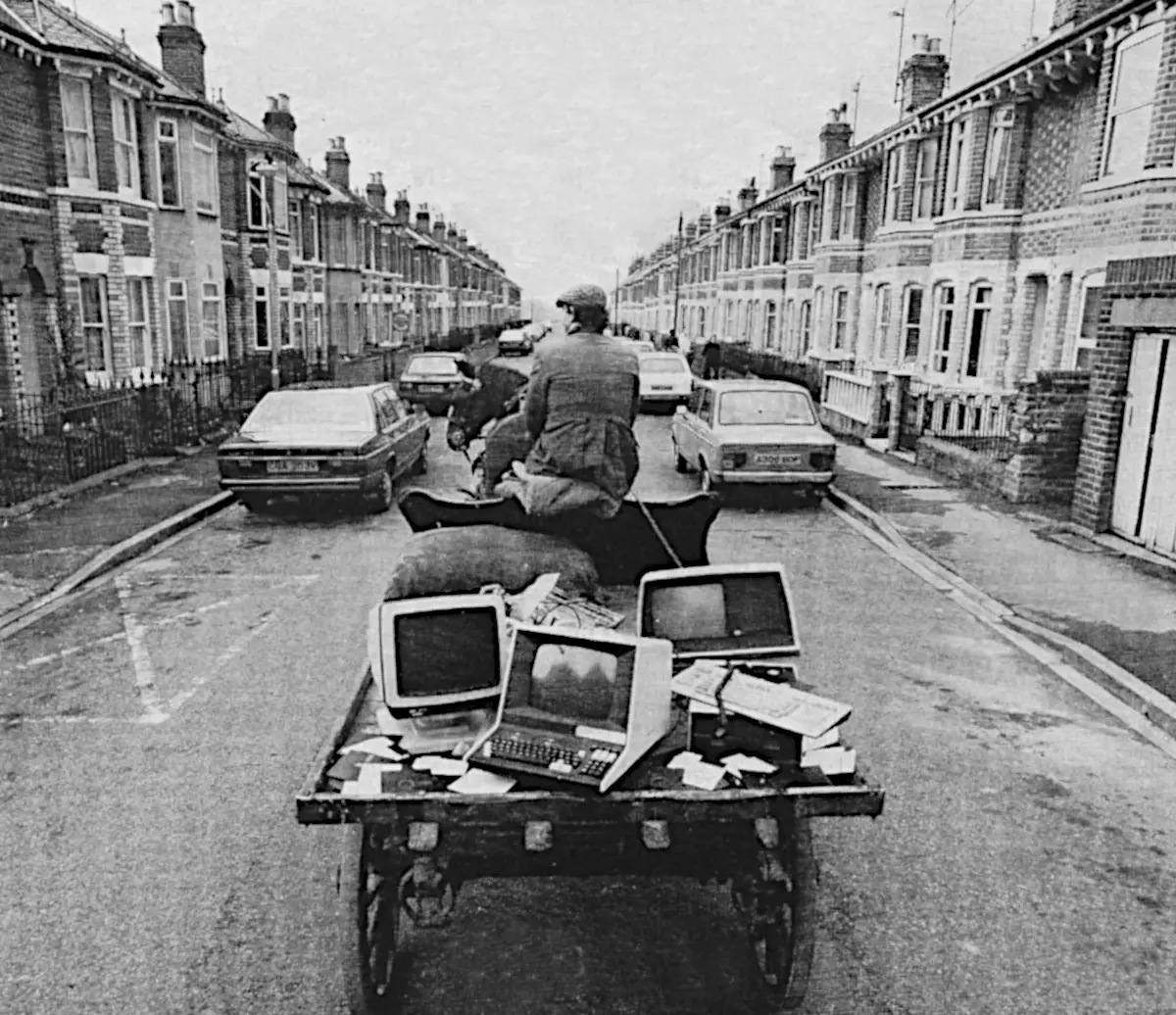
The fate of many microcomputer companies. From a Business Operating Software advert in Personal Computer World, June 1986.
Then the 8-bit market reached saturation and more companies imploded - Sinclair was sold for its name and assets only, Acorn almost didn't make it and a raft of also-rans fell by the wayside - Camputers, Dragon Data, Elan, Oric and Jupiter Cantab to name but a few. Even big names like Timex and Texas Instruments were burned.
Meanwhile, the sleeping giant that was IBM launched its 5150 at the end of 1981 and watched as it slowly but inevitably over the next few years became the standard. Other companies cloned it, copied and improved it and soon the only game in town was the IBM PC.
From the latter half of the 1980s, every micro company and its dog was building generic beige boxes, and people wanted the same beige boxes at home and work. The home computer as a concept was dead, and the "wonder years" were over.
This collection of over 300 adverts attempts to tell something of that story...
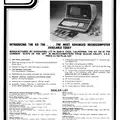
Karadawn
January 1982
Introducing the KD 700 - the most advanced microcomputer available today
It's perhaps something of a stretch to claim that yet another Z80, CP/M system was the most advanced available, but here it is, apparently: the Karadawn KD 700, first launched towards the end of 1981....
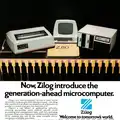
Zilog
January 1981
Now, Zilog introduces the generation-ahead microcomputer
It sometimes seems odd that CPU manufacturers were building their own micros, but there was precedent, with MOS Technology having to introduce the KIM-1 single-board computer in order to demonstrate its...
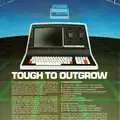
Intertec
March 1983
CompuStar: Tough to outgrow
Here's a nice advert for InterTec's CompuStar, which makes it look like the terminal-looking thing in the foreground is the most important part of the system. In this case, it was, sort of, which was...
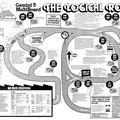
Gemini Micro
May 1982
Gemini Multiboard - the Logical Route
Here's an unusually-fun advert for Gemini's multiboard collection, showing a cheapskate route, an esoteric route to "Sky High Prices Inc", and, naturally, the Logical Route from the 80-Bus Station, via...
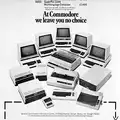
Commodore
May 1982
At Commodore, we leave you no choice
Here's another straightforward advert from Commodore, which was by far the most prolific of all computer companies if measured by the variety of adverts generated. Shown in this advert is the range of...
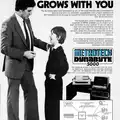
Dynabyte
May 1982
Dynabyte 5000. The system that grows with you
The Metrotech Dynabyte 5000 was the result of a collaboration between the UK-based technology company Metrotech Limited - part of the same Grand Metropolitan Group that once owned Burger King - and the...
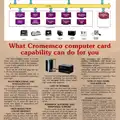
Cromemco
January 1983
What Cromemco computer card capability can do for you
According to the advert - which like Clenlo's advert of 1982 gives a nice insight into what a microcomputer "bus" actually does - Cromemco offered one of the most complete lines of computer cards in the...
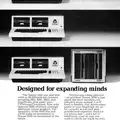
Transam
September 1982
Designed for expanding minds
This advert for the Transam Tuscan S100 curiously features product photos of the older Tuscan before it was rebranded. However, at least it manages to be one of the few adverts for the machine where...
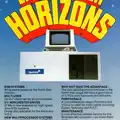
Hotel Microsystems
September 1982
Expand your Horizons
With an odd mixture of tech and Monty Python visuals, here's an advert from Hotel Microsystems, the company that would become HM Systems, which clearly hints at HM's change of direction which would lead...
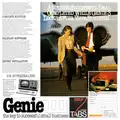
EACA/Genie
September 1982
Another successful deal completed while Genie III looks after your business
Adverts for microcomputers in this era can be broadly grouped into three or four types: a micro sitting on a table surrounded by something incongruous like the family silver, a micro in an office being...
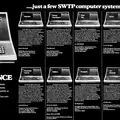
SWTPC
September 1982
SWTPC Computer Systems: Nothing beats experience
This three-page advert, which is great for viewers in dark mode but which is not so good for the consumption of black printing ink, shows that Southwest Technical Products (Computers) Company Ltd was...
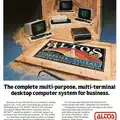
Altos
September 1982
The complete multi-purpose, multi-terminal desktop computer system for business
After several years selling the same ACS 8000 system, Altos is finally out with something new: the Series 5. And whilst one of the company's earliest adverts featured its micro stuck on a table with...
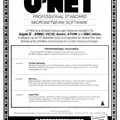
U-Micro
September 1982
U-Net: Professional-standard micronetwork software
U-Microcomputers, or more commonly U-Micro, started out in the late 1970s as the factory-appointed distributor of Ohio Scientific's range of machines for the north and midlands regions of the UK. Products...
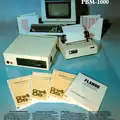
PBM
February 1982
Introducing performance to the microcomputer-based small business system
On the face of it, the PBM-1000 is yet another standard business micro, what with its Z80A processor, 80K RAM, 5¼" floppy disk drives and CP/M. Possibly designed by IMSAI 8080 co-designer Joe Killian,...
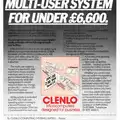
Clenlo
February 1982
A powerful multi-user system for under £6,600
As more adverts are added to the collection, the challenge is on to discover more and more obscure microcomputers that time forgot. And this is defintely one such computer: the Clenlo Ace Multi-User...